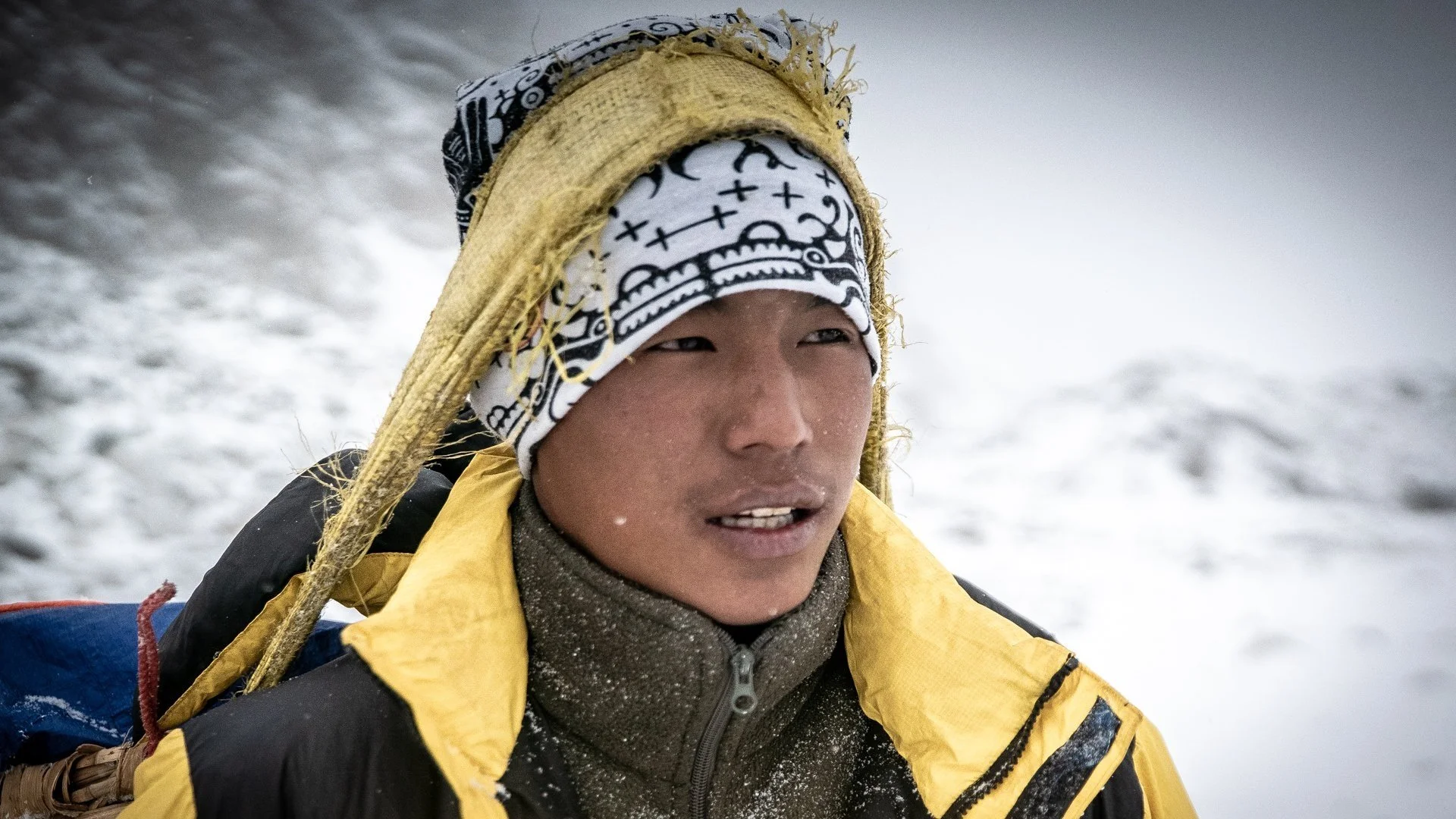The Wall of Shadows
Eliza Kubarska’s documentary explores the dilemma of a Sherpa family as it contemplates a perilous ascent of a holy mountain.
This film features a Sherpa family and their involvement with three climbers who call on the father, Ngada, to aid them in their attempt to climb Nepal’s Mount Kumbhakarna. Given the number of documentaries that have appeared in recent times centred on mountaineering exploits, it seems important to quote here a comment made by one of the climbers, the Russian Dmitry Golovchenko, when he is on camera: "this film is about people, not about climbing”. As this remark indicates, The Wall of Shadows is indeed far from being a standard film about mountaineering. Even so, the ascent of Kumbhakarna plays a not insignificant role in the movie and those aspects which focus on other matters leave a mixed impression.
At heart this film by Eliza Kubarska is concerned with portraying what it is like to live in this part of the world. The early scenes whether set in a summer settlement below the mountain or in a winter one at Ghunsa are centred on the daily existence of Ngada, his wife Jomdoe and their schoolboy son Dawa Tenzin. The boy has dreams of growing up to become a doctor and that underlines the fact that, even if he is able to win a college scholarship which would reduce the fees, the family will be hard put to it to cover the cost. Jomdoe weaves carpets and can make some money by selling them but the family’s income is essentially dependent on what Ngada earns by working for climbers. If Jomdoe dislikes the risks inherent in such work, she is even more disapproving when he is invited to guide a Pole and two Russians who are coming to the area to climb Kumbhakarna.
Jomdoe’s attitude on this point is linked to her religious beliefs for the Kirat religion regards the mountain as holy and forbids any climbing of it. Indeed, the film opens with an unseen narrator telling a legend about the mountain which is itself seen as God-like and capable of punishing any who attempt to scale it. The way in which this narrator comments at intervals regarding the legends around Kumbhakarna is, together with the vivid location photography, the best and most atmospheric aspect of this film. But, if it shows us a way of life effectively, it is less telling in portraying the people. In the case of the Sherpa family all too often what they say sounds like dialogue written for them so as to spell out clearly all the issues around Dawa Tenzin’s education. As for the climbers, we gather some details about them but never enough to feel that Kubarska’s film is capturing their lives in any real depth. Relatively late on, we get to the climbing expedition unwisely undertaken in dubious weather conditions. In most mountaineering films, the audience is willing the climbers to succeed and scenes leading to the eventual outcome have tension and suspense. Here, however, we don't have any strong feelings at all about the climb. Consequently, this film will best please those keen to see on screen the everyday life of a Sherpa family.
Original title: Die Wand Der Schatten.
MANSEL STIMPSON
Featuring Ngada Sherpa, Jomdoe Sherpa, Dawa Tenzin Sherpa, Marcin Tomaszewski, Dmitry Golovchenko, Sergiey Nilov, and Rekha K.Yadav as narrator.
Dir Eliza Kubarska, Pro Monika Braid, Screenplay Eliza Kubarska and Piotr Rosocowski Ph Piotr Rosocowski and Keith Partridge, Ed Barbara Toennieshen, Music Marcel Vaid.
Braidmade Films/Corso Film/Tilt Production/ZDF/ARTE-Tull Stories.
94 mins. Poland/Germany/Switzerland. 2020. UK Rel: 22 April 2022. Cert. 12A.


